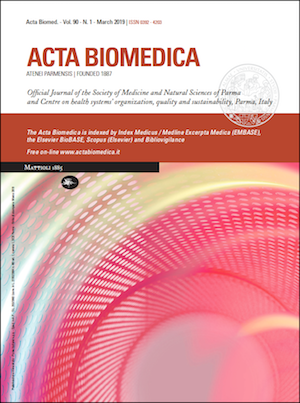Sleep disturbance and response to surgical decompression in patients with carpal tunnel syndrome: a prospective randomized pilot comparison of open versus endoscopic release
Keywords:
Insomnia, Carpal tunnel syndrome, PQSI, Insomnia Severity Index, open surgical release, endoscopic surgery, sleep disturbanceAbstract
Background: Sleep disturbance is a common complaint of patients with carpal tunnel syndrome (CTS). While carpal tunnel release (CTR) surgery has been shown to relieve subjective sleep-related complaints, data is lacking on the global effect on sleep using validated sleep measures. Additionally, it is not known if open (OCTR) or endoscopic release (ECTR) produce differing degrees of sleep-symptom relief. Methods: Sixty patients were randomly allocated to undergo either OCTR (n=30) or ECTR (n=30) surgery. Forty-three (71.7%) of the patients were female, and mean age of all patients was 49.4 years (range, 35-78). Prior to surgery, patients were administered three baseline self-reported outcome measures: the Pittsburgh Sleep Quality Index (PQSI), the Insomnia Severity Scale (ISI) and the Quick Disabilities of the Arm, Shoulder and Hand (QuickDASH) survey, which were subsequently administered at three postoperative time points: 1-2 weeks, 4-6 weeks and 6-12 months. Results: All 60 patients experienced significant improvements in the three outcome scores by their first postoperative visit compared to preoperatively. ECTR provided superior improvement to OCTR at the first postoperative visit for ISI (P=0.006) and PSQI (P=0.016), and at the second visit for PSQI (P=0.0038). There were no significant differences between the two groups for the QuickDASH at any time points, or for the ISI/PSQI at the final follow-up. Conclusion: Endoscopic and open CTR both improve sleep symptoms postoperatively in the short-term which is sustained for 6-12 months, although endoscopic CTR does so more rapidly.
Downloads
Published
Issue
Section
License
This is an Open Access article distributed under the terms of the Creative Commons Attribution License (https://creativecommons.org/licenses/by-nc/4.0) which permits unrestricted use, distribution, and reproduction in any medium, provided the original work is properly cited.
Transfer of Copyright and Permission to Reproduce Parts of Published Papers.
Authors retain the copyright for their published work. No formal permission will be required to reproduce parts (tables or illustrations) of published papers, provided the source is quoted appropriately and reproduction has no commercial intent. Reproductions with commercial intent will require written permission and payment of royalties.







